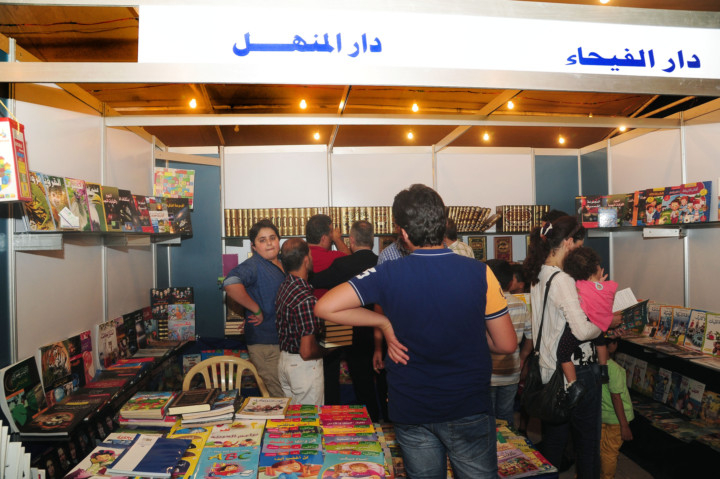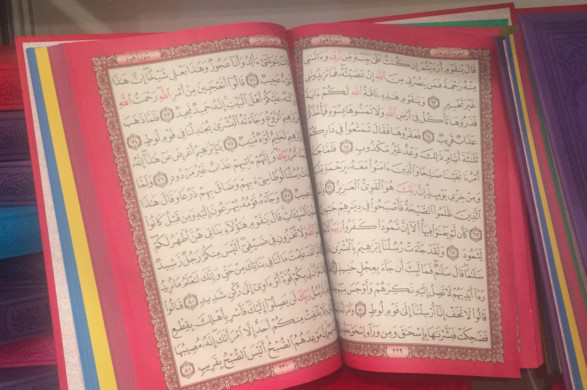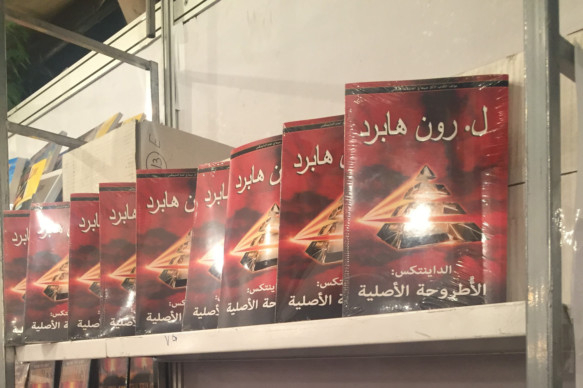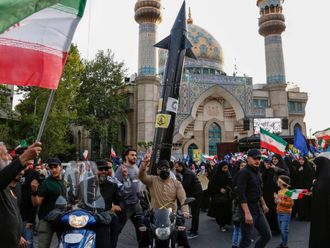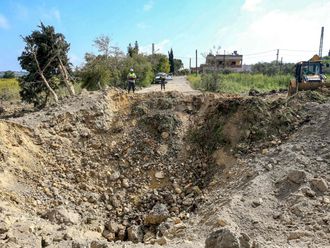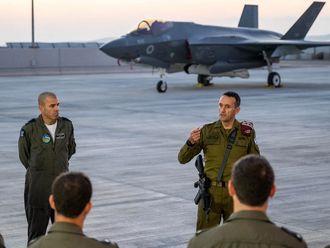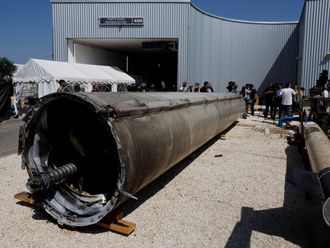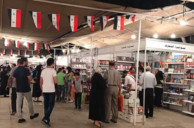
Damascus: For the first time since the war broke out in Syria six years ago, the Syria Book Fair is back.
Last year, the fair made a symbolic soft comeback, but this year it is running full-fledged.
Vice-President Najah Al Attar started the fair in 1985 during her tenure as minister of culture.
A much anticipated event in pre-war Syria, the book fair was always an attraction for Arab publishers and Syrian readers of all ages, especially high school and university students, due to the variety of works on display and the competitive prices offered, often 50-60 per cent cheaper than regular market prices.
The Assad Library, where the event has always been hosted, now faces a major checkpoint in the Abu Rummaneh neighbourhood of Damascus, making traffic and parking especially difficult.
The library complex lies in the middle of the Umayyad Square in central Damascus, where mortars from the rebel countryside have landed in recent years.
The library itself faces Army Headquarters, the Damascus Opera House, and Syrian Television, three institutions corroded with barbed wire and high concrete walls to ward off car bombs.
Inside the library premises, however, security was surprisingly lax and no armed men were seen during the event.
Arab nationalism
Leading Lebanese publishers like Dar Bissan were present, selling books on Arab nationalism, and so were prominent publishing houses from Egypt (a total of 22), Palestine, Algeria, and Iraq — in addition to the Iranian and Russian Cultural Centres, ceremonially represented with small stands selling the works of Dostoevsky and lengthy Arabic biographies of Ayatollah Khomeini.
Iran has been Syrian President Bashar Al Assad’s most loyal ally in the war.
A total of 150 publishers took part in this year’s book fair, which Assad Library director Saleh Saleh described as a “major breakthrough.”
Saudi and Jordanian children book publishers Jarir and Dar Al Manhal were also at the fair, despite their countries’ staunch opposition to President Bashar Al Assad.
When approached for comment by Gulf News, one of their employees refused to speak, saying: “No politics!”
Browsing through “more than 100,000 titles on display” one could find a wide assortment of books ranging from history to poetry, novels, religion, cookery, and horoscopes.
“The book that is selling most is Quran” said Saleh Shaikh Al Kassaben, who works at a publishing house in Damascus.
“We are now printing copies of Quran in florescent colours, with bookmarks.”
Translated copies of the Quran are also available in English, French and German, with some printed in Saudi Arabia. Copies of Quran in paperbacks, CDs and audio format are also available at the fair.
Absent from the fair were former attractions like the Libyan stand, which was always draped in green, selling copies of Muammar Gaddafi’s famed “Green Book.”
“One thing that caught my attention were the works of Ron Hubbard,” said Yara, a 22-year old student at the faculty of fine arts in Damascus, referring to the founder of the Church of Scientology, a taboo topic not only in Syria but throughout the Muslim World.
Indeed, his works are neatly on display at a Syrian bookstand, in both Arabic and English, selling for 3,000 Syrian pounds ($5.6) each.
When asked about whether people buy them, the attendant Yousuf Akel told Gulf News: “Not really but we are glad they are there. I don’t think anybody is aware of Hubbard and his works. But isn’t that why we hold book fairs after all, to educate people and introduce them to new ideas?”
Syrian history
Interestingly, many modern Syrian history books were also on display at the fair, all printed before outbreak of the present conflict in 2011 with the tri-colour of Syrian Independence on their front or back covers.
That was the official flag of Syria from 1932 to 1958, and again from 1961 to 1964.
The Baathists replaced it with the current flag and it remained nostalgic, reminiscent of a flowery past, until the Syrian opposition took it up as their official emblem in 2011.
Since then it has been banned on state-run television and in newspapers and all books showing it were pulled off the shelves within Damascus. That strict regulation has seemingly been waived at the book fair.
Equally surprising was the sale of books by prominent critics of the Baath state, like veteran scholar Ali Tantawi, who spent long years in exile in Saudi Arabia and died there in 1999.
His classic “The Umayyad Mosque” was the first book that visitors spotted at the large Dar Al Fikr stand, a prominent publisher of Islamic books since 1957.
Also selling were the complete works of former defence minister of Syria Mustapha Tlass, who died in Paris last July during his self-imposed exile.


